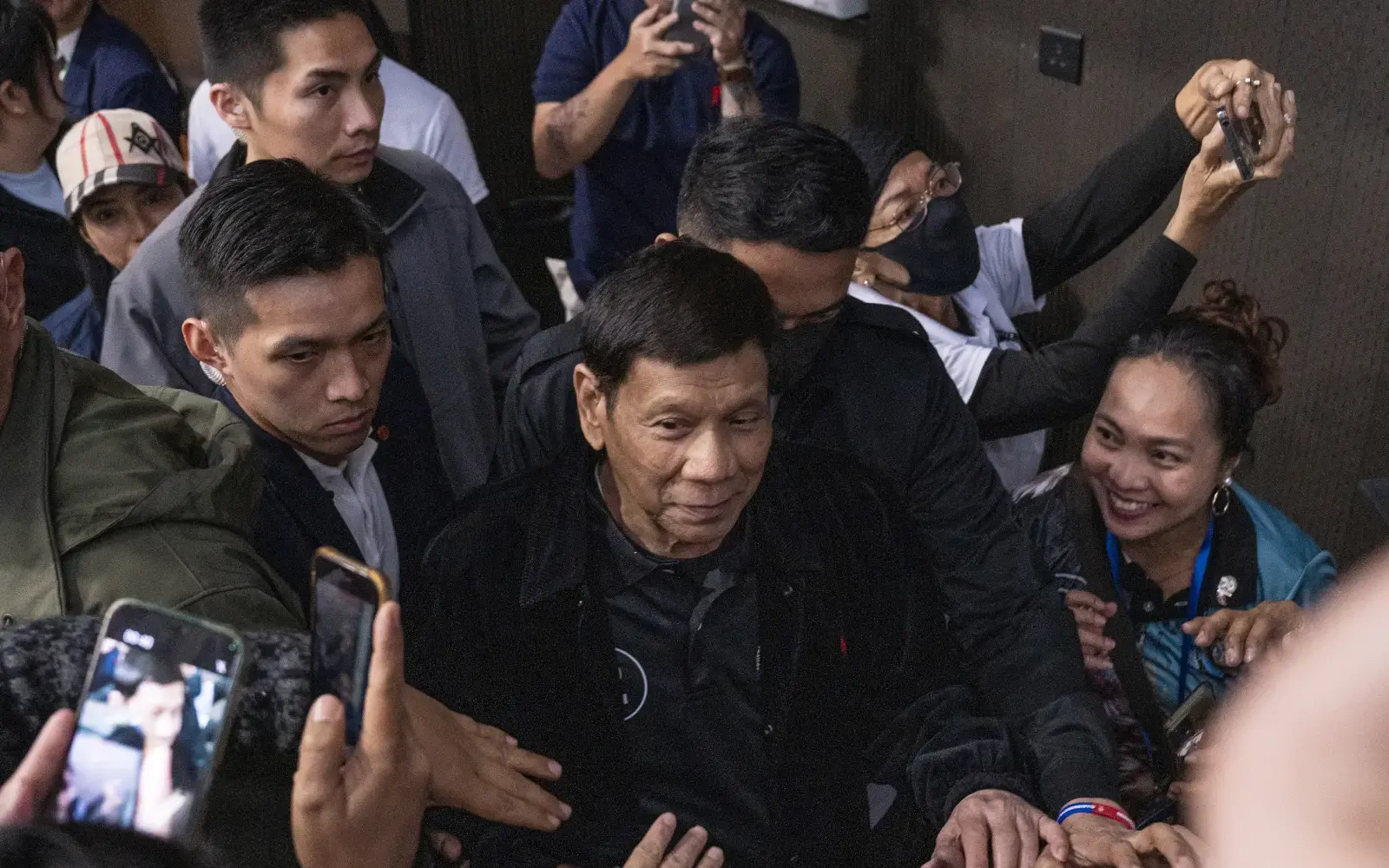The International Commission of Jurists (ICJ) welcomes the arrest of former Philippine President Rodrigo Duterte on 11 March 2025, carried out by the Philippine National Police pursuant to a warrant issued by the International Criminal Court (ICC). The warrant alleges that Duterte is responsible for crimes against humanity, citing the summary execution of thousands of Filipinos between 2011 and 2019 during operations in pursuit of his so-called “War on Drugs.”
“This arrest is a significant step toward ensuring justice for the countless victims of Duterte’s so-called War on Drugs,” said Melissa Upreti, ICJ Regional Director for Asia and the Pacific.
“It demonstrates that impunity is not inevitable and that accountability is possible.”
While this arrest represents a monumental development, it highlights the ongoing need for broader accountability.
The ICC plays a pivotal role in addressing crimes that have gone unpunished in domestic courts. However, its investigation, constrained by the Philippines’ withdrawal from the Rome Statute in March 2019, is restricted to crimes committed between November 2011 and 16 March 2019, the day before the withdrawal. In line with its policy, the ICC Prosecutor prioritizes individuals most responsible for the gravest crimes under the jurisdiction of the ICC. Domestic authorities remain obligated to ensure accountability for perpetrators beyond the ICC’s temporal and personal jurisdiction by investigating and prosecuting those outside the scope of the ICC arrest warrant, including crimes not covered by the Rome Statute.
The ICJ calls for a thorough, impartial, and prompt investigation by Philippine authorities with a view to bringing to justice all individuals implicated in these atrocities, including those who directly carried out the killings and those who facilitated or encouraged them. For its part, the ICC should continue its investigation into crimes falling within its remit.
The ICJ urges the ICC to conduct the legal process swiftly and fairly, ensuring justice for victims and their families. It also emphasizes the need to complement international efforts with robust domestic prosecutions to fully dismantle the cycle of impunity.
The ICJ also calls on Philippine authorities to cooperate fully with the ICC in its pursuit of the prosecution of Rodrigo Duterte and any other applicable cases.
Background
Rodrigo Duterte, the former president of the Philippines, was arrested in Manila following the issuance of an ICC warrant accusing him of crimes against humanity. The warrant is based on allegations that form crimes against humanity, specifically murder, perpetrated during his controversial anti-drug campaign during his presidency (2016 – 2019) and his earlier tenure as Mayor of Davao City (2011 – 2016). These acts are implicated under Article 7(1)(a) of the Rome Statute, which addresses crimes committed as part of a widespread or systematic attack directed against a civilian population.
Notwithstanding the Philippines’ withdrawal from the Rome Statute in 2019, the ICC retains jurisdiction over crimes committed prior to the withdrawal’s effective date. The ICC has invoked the complementarity principle under Article 17, concluding that domestic investigations by the Philippine authorities into these crimes were neither genuine nor adequate.
The arrest warrant, issued by the Pre-Trial Chamber, rests on a determination of reasonable grounds to believe that such crimes occurred, and on the necessity of Duterte’s arrest to ensure his presence at trial and to prevent potential obstruction of justice. The warrant’s enforceability remains unaffected by the Philippines’ treaty withdrawal, as jurisdiction is anchored in the temporal context of the alleged crimes. While the obligation to cooperate with the ICC applies to investigations initiated before withdrawal, under Philippine law, cooperation becomes discretionary post-withdrawal. Refusing ICC cooperation may result in a non-cooperation declaration and referral to the Assembly of States Parties, which may lead to reputational but unenforceable consequences.





